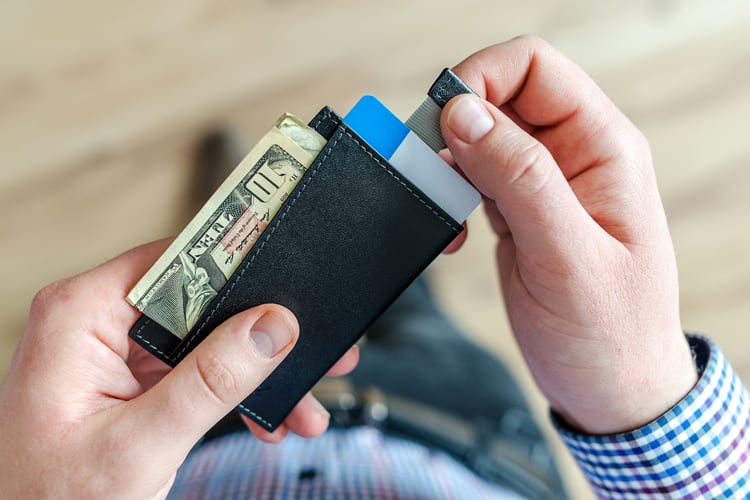When your business gets its first credit card, you might be tempted to go on a spending spree that rivals a teenage girl’s. Finally, you have access to all the equipment and tools your business could ever want — but before you start dipping your chip anywhere, you need to think about your long-term cash flow plan.
As is true when you use any credit cards, your purchases now will likely cost you more later. Because business expenses tend to be higher than personal ones, you need to be especially careful with how you use your business credit card, especially at the beginning of your business’s life. To that end, here are a few big rights and wrongs to keep your business credit card spending on the right track.
Right: Be Choosy With Your Business Credit Card
Not every business credit card out there is the right fit for every business. Before you sign up for the first plastic you can find, you need to weigh the pros and cons of different plans — and to do that, you need to evaluate your business needs. For example, if you anticipate traveling often, you might need a business card that offers travel rewards.
Almost all small businesses should seek business cards, as opposed to personal credit cards. This is because business cards tend to have higher spending limits and rewards that are more applicable to business needs. Still you should compare Visa business card benefits against others you can find, so you can be certain to take full advantage of your spending.
Wrong: Use Your Card for Long-term Debt
It’s okay to use your card to buy lunch for the office, obtain office supplies or make other relatively small purchases, but you shouldn’t expect to outfit your entire business using that small piece of plastic. Credit cards notoriously have higher interest rates than other types of debt, so investing in expensive equipment or other costly items with your card is a bad idea that will put your business deeper and deeper in the red as time goes on. Instead, you should pursue a business line of credit, which will give you access to more expensive equipment more affordably.
Right: Pay Your Balance on Time and in Full
It isn’t enough to avoid making a late payment on your business credit card; you shouldn’t even permit a balance to carry from one month to the next. Generally, debt isn’t necessarily bad for a business — but that is when it takes the form of small business loans or lines of credit. Again, interest rates are relatively high for credit cards, so failing to pay your balance in full on time will result in high fees to pay later. Though you might be comfortable carrying a balance on your personal credit card (even though you shouldn’t be) you must pay off your business card every month like clockwork.
Right: Develop a Company Policy for Credit Spending
You might know the right way to use a credit card — i.e. sparingly — but that doesn’t mean everyone else with access to the company card is so responsible. If you aren’t careful, you might see every day’s breakfast and lunch, employees’ gas bills and other unnecessary charges pop up, and your business is responsible for paying all of them.
There are two ways you can solve this problem: Either you don’t allow anyone else to use the business credit card, or you write a company credit card policy. In the former solution, you will have to wade through all sorts of purchase orders and charge requests every day, which will slow down you and your business’s growth. Fortunately, it isn’t difficult to write a spending policy that employees understand and adhere to, so you should do so before you acquire a business card.
Wrong: Skip Cardholder Rewards and Benefits
Non-rewards credit cards typically have slightly lower interest rates — but since you aren’t planning to maintain a balance on your business credit card, the interest rate should have only a minor impact on your decision-making process. Meanwhile, credit card rewards can stack up fast, especially for businesses that make many small purchases. As mentioned before, the key is to find a rewards card that provides the type of rewards you most need, such as plane tickets and hotel rooms or furniture and office supplies.
You need a business credit card, but more than that, you need the right business credit card — and you need to use it correctly to benefit your business. By being careful with your spending and your bill-paying, you should be able to use your business card for growth.




